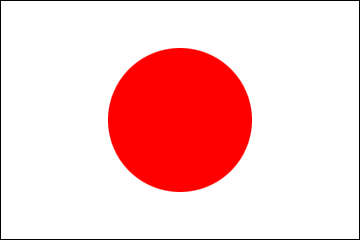ステートメント - 第107回IOM総会 伊原大使ステートメント(平成28年12月06日)
平成28年12月28日
Permanent Representative of Japan to the International Organizations
in Geneva On the occasion of the General Debate at the 107th Session
of the IOM Council Geneva, 6 December, 2016
Japan highly commends Director General Swing for his solid leadership over the last 8 years. We also appreciate the significant progress achieved in terms of budget reform and IOM-UN relations under the
former Council Chairs, Ambassador De Crombrugghe and Ambassador Muylle. Japan welcomes the new Chair, Vice-Chairs and Special Rapporteur and looks forward to working closely with them.
Japan joins its fellow member states in welcoming Tonga as a new IOM member state. We also welcome various new stakeholders as observers at this Council, including a Japanese NGO, Japan Platform. This new membership and participation of new observers will, I am sure, contribute to strengthening the IOM’s activities.
At the UN Summit for Refugees and Migrants in September this year, the decision was taken to draft a Global Compact for Safe, Regular and Orderly Migration. Japan is ready to actively contribute to formulating
this Compact, which should serve as an important roadmap to address human mobility issues. We expect the IOM to play a key role in developing the Compact, based on its 65 years of experience in the field, and in cooperation with the co-facilitators, Switzerland and Mexico.
Mr. Chairman,
In view of the protracted nature of the current refugees and migrants situation, Japan is advocating the “Humanitarian-Development Nexus”. We place much importance on this approach as a means of both ensuring the security and dignity of migrants and refugees, and strengthening the sustainability of their host communities. At September’s UN Summit and President Obama’s Leaders’ Summit on Refugees, Prime Minister Abe shared his concrete plan in which Japan pledges a package of 2.8 billion US dollars between 2016 and 2018 for humanitarian and self-reliance assistance to refugees and migrants, and for assistance to host countries and communities. Japan is further steadily implementing the “Grand Bargain” agreement reached with various stakeholders including the IOM on the occasion of the World Humanitarian Summit in May this year, which emphasizes the importance of strengthening cooperation among
development and humanitarian actors.
Japan is also strongly committed to achieving the SDGs, including the mainstreaming of human mobility. The Sustainable Development Goals Promotion Headquarters, established in May by Prime Minister Abe,
formulated an outline of the SDGs Implementation Guiding Principles to redouble our efforts to achieve the SDGs, including issues related to human mobility. In this connection, we look forward to even closer collaboration with the IOM in the aim of realizing a world where nobody is left behind.
Mr. Chairman,
The year 2016 marked the 65th anniversary of the founding of the IOM. At this important juncture, in which human mobility becomes a central issue of international debate, expectations for the IOM are high. The IOM’s budget for 2017 is its largest ever as the organization rapidly increases the scale of its field operations to address the greatest humanitarian crisis in history. The responsiveness, flexibility, and
efficiency of the IOM must be maintained as it assumes its new status as a Related Organization to the UN. Japan is determined to continue to support and cooperate with the IOM, together with other member states and broader stakeholders.
I thank you, Mr. Chairman.
